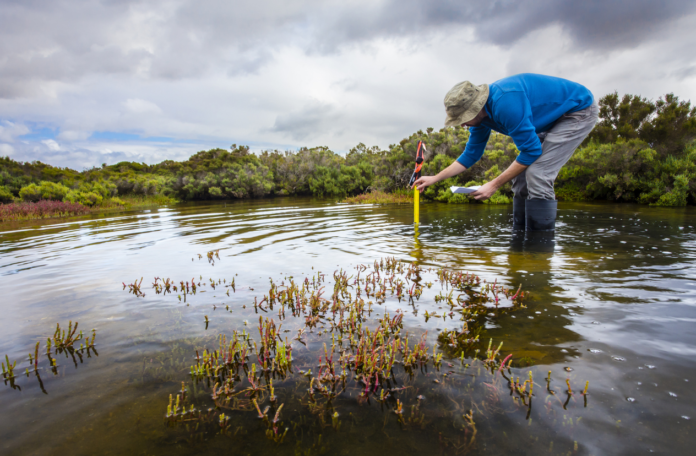The ongoing permitting debate in Washington has focused largely on the energy sector and the “red tape” holding energy projects back. But “green tape” can also create costly delays, duplicative oversight and difficulty in protecting and restoring nature. If we want to restore and ensure America’s beautiful spaces for generations to come, it’s important that we make conservation projects easier, not harder.
It’s often said that the North American Model of Wildlife Conservation is the envy of the entire world. The success of that framework is directly attributable to the hunters, anglers and countless other varieties of outdoorsmen and women who cherish our natural spaces above all else. They have a great sense of responsibility in the stewardship of these resources and have supported funding them in several ways. They invest heavily in the future of our natural resources. Being in the outdoors is a passion they plan on sharing with their children and, someday, their grandchildren.
State hunting and fishing license sales, including state duck stamps, provide critical funding for conservation, supporting critical habitat for wildlife and benefits for all people. According to the U.S. Fish and Wildlife Service, since 1967, revenues from hunting licenses are expected to exceed $28.7 billion, and fishing license revenues are projected to exceed $22.9 billion, almost all of which has been reinvested in conserving America’s fish, wildlife and natural spaces.
Waterfowl hunters also contribute to restoring wetlands through the purchase of their Duck Stamp, which is required to hunt waterfowl and generates approximately $25 million annually for habitat conservation.
Similarly, sportsmen and women have been steadfast supporters of the North American Wetlands Conservation Act (NAWCA), considered the nation’s most successful wetlands conservation program. NAWCA has conserved more than 30 million acres since its enactment in 1989. Thanks to the America’s Conservation Enhancement Act, signed into law in 2020, NAWCA has been reauthorized for $60 million annually until 2025.
But despite these robust investments, many projects are being held up due to overly burdensome permitting requirements — a process that is slow, bureaucratic and, in this case, needlessly prohibitive.
Unfortunately, wetland restoration permits are often reviewed and hamstrung by regulations meant to protect wetlands from development. This results in delayed projects, onerous requirements and increased costs. Many of these restoration projects are even being funded through federal programs such as the NAWCA — meaning that federal agencies with missions to protect and improve the environment have already reviewed them and determined them to have environmentally beneficial outcomes.
Yet important projects to restore wetlands and other habitats are delayed nonetheless.
Wetlands are among the most biologically diverse ecosystems on the planet. They offer tremendous benefits to our communities, including improved water quality and coastal resiliency, mitigation of flooding, carbon sequestration and groundwater recharge. It’s easy to make the case that responsible reforms to environmental restoration permitting would help us improve all of the above — while saving taxpayer dollars in the process. These are outcomes that should receive broad bipartisan support.
More than 50 percent of the continental United States’s historic wetlands have already been lost. In some states, it’s closer to 90 percent. It is imperative that Congress act quickly to streamline the process for restoring degraded wetlands. Focusing permitting reform efforts solely on energy production would result in a missed opportunity.
Put simply, permitting issues are holding North American conservation back, but Congress can fix it. This is a responsible and bipartisan way to ensure that American sportsmen and women can pass on their passions and appreciation of our natural resources, not just to their children and grandchildren, but also to keep these cherished outdoor traditions alive for generations long after. And our environment will be more resilient as a result.
Zach Hartman is the chief policy officer at Ducks Unlimited. Christopher Barnard is the vice president of external affairs at the American Conservation Coalition.




